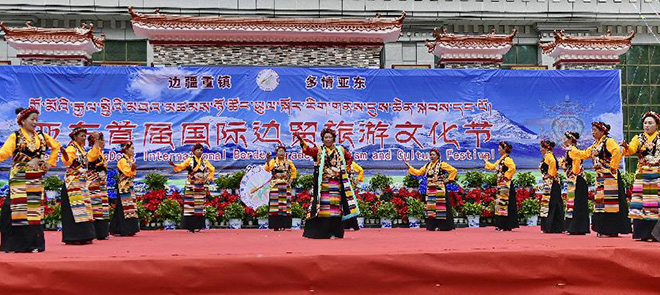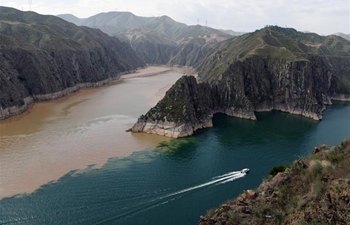NANNING, June 3 (Xinhua) -- Chen Qicai, the Party secretary of Tanxi Village, is extremely busy during weekends and holidays as he and his fellow villagers have to receive tourists who come to visit the beaches of the Beibu Gulf.
Chen lives in Tanxi village on the coast of Beibu Gulf in southern China's Guangxi Zhuang Autonomous Region.
"The village remained undeveloped for a long time and more than 2,800 villagers lived by fishing," Tan said.
Construction of the Bailang (White Wave) Beach in this village began in the 1990s and now it has become a 4A-level scenic spot.
"We have seen an increasing number of visitors as tourist infrastructure has developed. The number of visitors to Bailang Beach grows by 15 percent annually," he said.
Besides Bailang Beach, more than 20 scenic spots have sprung up around Beibu Gulf, where efforts are underway to transform it into an international tourist resort.
Last year, six cities around the gulf, including Fangchenggang, Qinzhou, and Beihai, received 324 million tourists, up 28.1 percent year on year. Total spending reached 344 billion yuan (around 49.9 billion U.S. dollars), up 33.2 percent year on year.
"The outstanding ecological advantage helps this region stand out as an international destination," said Luo Zhen, a vice mayor of Fangchenggang.
Several years ago, the construction of a large shipyard was planned at the Sanniang Gulf in Qinzhou. The plan was later dropped to protect the habitat of Chinese white dolphins.
According to the long-term observation and calculation by Pan Wenshi, a professor from the School of Life Sciences under Peking University, the number of Chinese white dolphins was on the rise from 2013 to 2016, increasing by four to six dolphins per year.
Environmental protection efforts in Qinzhou have paid off. The number of tourists and total tourism consumption in the city have more than doubled in the last three years.
The neighboring city of Beihai has also taken measures to conserve the coastal environment. At Yin Tan, or the Silver Beach, authorities have expanded planting trees and issued a special regulation on the protection of the beach.
"Construction of non-public welfare permanent buildings within 300 meters from the coast is strictly prohibited. Land reclamation, enclosure of beaches and mangroves are also not allowed," said Han Yunfei, deputy director of Beihai Tourism, Culture and Sports Bureau.
According to local authorities, a cruise terminal with a capacity of 100,000 tonnes is under construction in Beihai to further boost the tourism sector.
The area will be accessible to cross-border cruise lines that link the Beibu Gulf with southeastern Asian countries such as Vietnam and Malaysia.
















